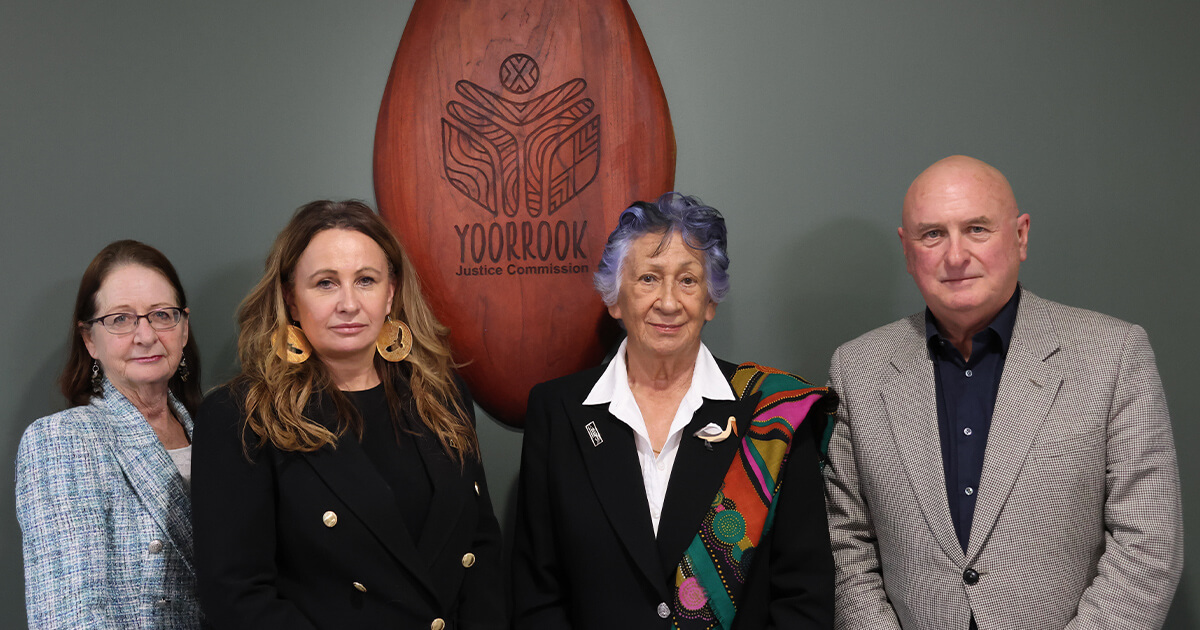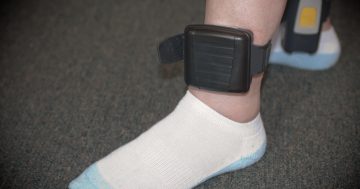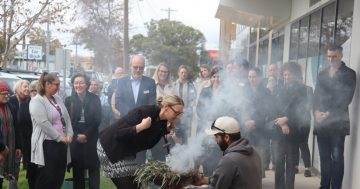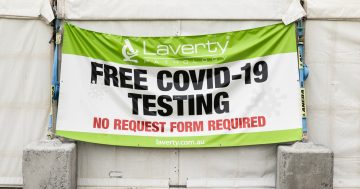
Evidence was provided to the Yoorrook Justice Commission by 18 state witnesses over a 27-day hearing between April and May 2023, along with more than 4000 documents. Photo: Yoorrook Justice Commission.
The Victorian Government has responded to the Yoorrook Justice Commission’s report detailing past and present injustices against First Nations people, but the state’s Aboriginal Legal Service (VALS) said it “reads like it was slapped together overnight”.
The 445-page report followed the state’s first formal truth-telling process on First Peoples’ experiences of colonisation. It aimed to establish a public record of systemic injustices, develop a statewide understanding of their individual and collective impact, and determine their causes and consequences, including the role of Victoria’s laws and policies.
Of the 46 recommendations for change made by the commission, only four were supported in full by the Victorian Government.
“We have waited over 210 days for the Victorian Government to respond to the Yoorrook for Justice Report and it reads like it was slapped together overnight,” VALS CEO Nerita Wright said.
“It is so disappointing that the Victorian Government did not take this more seriously and develop a more detailed response that supported in full all recommendations.”
Twenty-four recommendations were supported in principle, while 15 others remain under consideration.
The government said further reviews were required on design, planning and implementation issues, but acknowledged this could mean not all recommendations would progress within a set timeframe.
In one example referring to a recommendation for the statewide rollout of existing programs such as the Koori Family Hearing Day, the state cited broader fiscal and workforce constraints as reasons why it didn’t wholly commit.
Among those who gave evidence before the commission was the managing lawyer at the Human Rights Law Centre (HRLC), Monique Hurley.
She said she was dismayed by the government’s rejection of three recommendations:
- Raising the age of criminal responsibility to at least 14 years old in law, and the minimum age of detention to at least 16 years old
- Overhauling discriminatory bail laws and creating a presumption in favour of bail for almost all offences
- Strengthening the state’s Charter of Human Rights to make it more accessible.
The government’s response states it would abide by its original plan to raise the age of criminal responsibility to 12 and strengthen the existing legal presumption of doli incapax later this year. This would be followed by another lift to 14 by 2027, “with exceptions and subject to the implementation of an alternative service model”.
As for the state’s Bail Amendment Act 2023, the government said it would only consider further action following the outcomes of a statutory review expected by September 2026.
Ms Hurley said this rejection only compounded the damage done by the government’s recent backflip on youth bail reform, and lost potential of changes implemented last month.
Recommendation 6 asked for the state’s Charter of Human Rights to be changed so that it enables individuals to bring cases to the Victorian Civil and Administrative Tribunal (VCAT) for a remedy, including compensation. However, the government said it would involve considerable expansion of VCAT’s remit, which was not supported at this time.
On top of accepting all the commission’s recommendations, the HRLC has reiterated calls for the Victorian government to:
- End the status quo of police investigating themselves and dodging accountability for misconduct, deaths in police custody and discriminatory policing
- Implement OPCAT, the United Nations’ anti-torture protocol designed to prevent the abuse of people locked away behind bars.
Despite the government’s response, Yoorrook chair Professor Eleanor Bourke said the commissioners remained committed to engaging with the state in addressing injustices against the First Peoples of Victoria.
“Given the weight of evidence presented throughout the inquiry, which included deeply personal accounts from First Peoples witnesses of suffering which many continue to experience every day, commissioners are disappointed by the government’s decision not to support three recommendations,” Professor Bourke said.
“Recommendations regarding the Bail Act and the minimum age of criminal responsibility and detention are crucial given the alarming over-incarceration of First Peoples adults and children, and ongoing deaths in custody.
“These recommendations were not made lightly. They go to the heart of addressing ongoing injustice against First Peoples.”
Professor Bourke said additional accountability hearings may be called later in the year, where government representatives would be required to provide updates on recommendations and their implementation.











